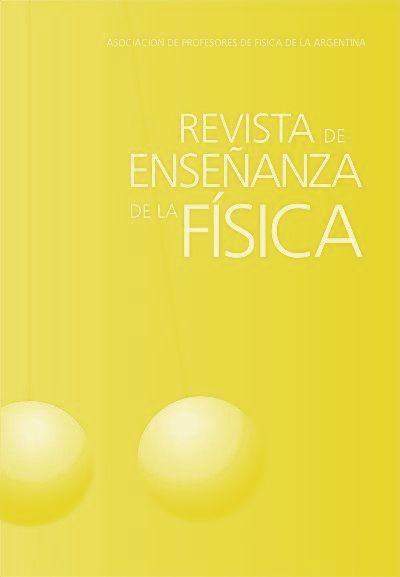Representation of arguments in discursive episodes of future physics teachers
Keywords:
Initial teacher training; Argumentative sequence; Physics teachingAbstract
This work presents the argumentative sequence as a representation of arguments that reflects the way in which new arguments are incorporated into the structure of the discursive interventions of future physics teachers. The so-called linguistic skills and argumentative resources configure these sequences in what constitutes an interpretive proposal about how the students who are trained to be physics teachers argue in the Physics Didactics class. The representation of arguments is exemplified from the results obtained in the research project that has been carried out since 2016 within the framework of the doctoral program of the National University of La Plata. We describe the research process and expose the theoretical framework that allowed us to locate language skills based on their complexity and to construct the representation of arguments. How valuable this representation is for our interpretive proposal and the importance it constitutes for the initial training of the Natural Sciences teacher is discussed at the end of the work.
Downloads
Published
Issue
Section
License

This work is licensed under a Creative Commons Attribution-NonCommercial-NoDerivatives 4.0 International License.
Aquellos autores/as que tengan publicaciones con esta revista, aceptan los términos siguientes:Los autores/as conservarán sus derechos de copiar y redistribuir el material, bajo los términos estipulados en la Licencia de reconocimiento, no comercial, sin obras derivadas de Creative Commons que permite a terceros compartir la obra bajo las siguientes condiciones:
- Reconocimiento — Debe reconocer adecuadamente la autoría, proporcionar un enlace a la licencia e indicar si se han realizado cambios. Puede hacerlo de cualquier manera razonable, pero no de una manera que sugiera que tiene el apoyo del licenciador o lo recibe por el uso que hace.
- NoComercial — No puede utilizar el material para una finalidad comercial.
- SinObraDerivada — Si remezcla, transforma o crea a partir del material, no puede difundir el material modificado.
- Los autores/as podrán adoptar otros acuerdos de licencia no exclusiva de distribución de la versión de la obra publicada (p. ej.: depositarla en un archivo telemático institucional o publicarla en un volumen monográfico) siempre que se indique la publicación inicial en esta revista.
- Se permite y recomienda a los autores/as difundir su obra a través de Internet (p. ej.: en archivos telemáticos institucionales o en su página web) antes y durante el proceso de envío, lo cual puede producir intercambios interesantes y aumentar las citas de la obra publicada. (Véase El efecto del acceso abierto).










